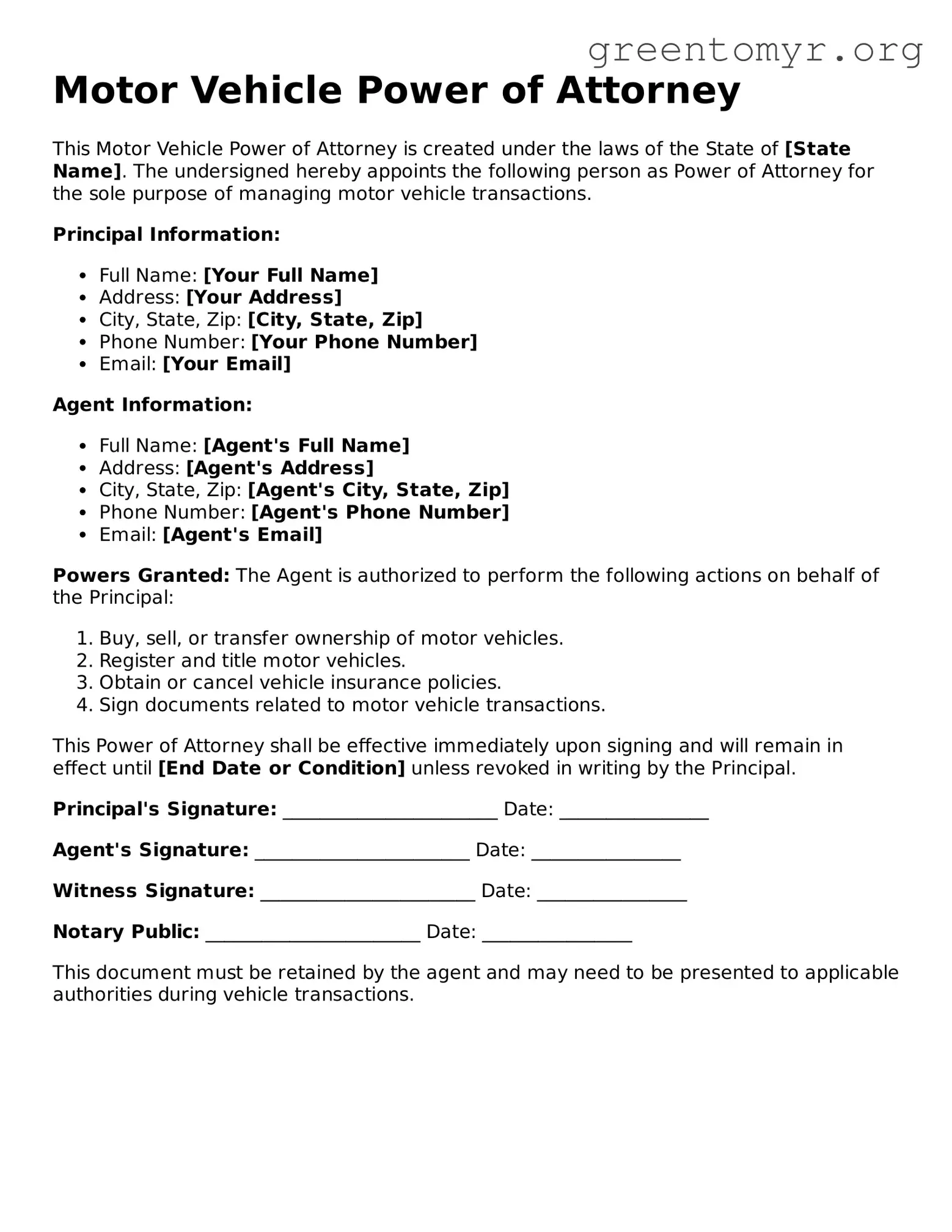Completing a Motor Vehicle Power of Attorney form can seem straightforward, but individuals often encounter pitfalls that can create complications. One common mistake is failing to include all required information. The form typically asks for specific details such as names, addresses, and vehicle information. Omitting any of these details can lead to delays or even rejection of the form.
Another frequent error involves not signing the form in the designated locations. The signature legitimizes the authorization and confirms that the individual understands the responsibilities being delegated. Neglecting to provide a valid signature can invalidate the power of attorney, preventing the designated agent from acting on behalf of the person granting the authority.
It's also important to understand the limitations of the powers granted. Many people mistakenly choose broad terms without specifying the exact powers being conferred. For instance, if the document does not clearly outline whether the agent can sell or transfer the vehicle, there could be misunderstandings later. Precise language helps ensure that everyone is on the same page.
Additionally, individuals may overlook the need for a witness or notary signature. In many states, a Motor Vehicle Power of Attorney requires either a witness signature or notarization to be considered valid. Failing to include one of these options can compromise the document's legitimacy, making it ineffective when presented to a motor vehicle department.
Another common mistake is not keeping a copy of the completed form for personal records. After submitting the document, individuals may find it challenging to track the status of their transactions, leading to confusion. Retaining a copy serves as a reference and can assist with follow-up inquiries.
People also often forget to update the power of attorney when circumstances change. Life dynamics can shift, prompting a need for revisions to the document. Failing to amend it when necessary can lead to confusion or a lack of clarity regarding who holds authority at any given time.
Some individuals may misinterpret the extent of their rights and responsibilities under the power of attorney. It's crucial to realize that granting this authority does not absolve the individual of potential liabilities. A misunderstanding can result in unwarranted legal issues, especially during the sale or transfer of a vehicle.
Another mistake is not verifying the credentials of the chosen agent. Selecting someone who is untrustworthy or inexperienced can lead to misuse of the authority granted. It's essential to choose an individual who is responsible and understands how to handle the responsibilities outlined in the power of attorney.
Lastly, timing can be a vital consideration. Waiting until the last minute to complete the form can create immense pressure and the risk of errors. Taking the time to review and understand the form is crucial for ensuring all necessary steps are followed, fostering a smoother transaction process.
